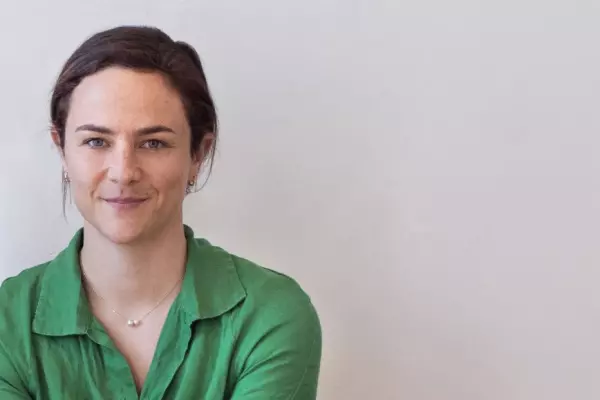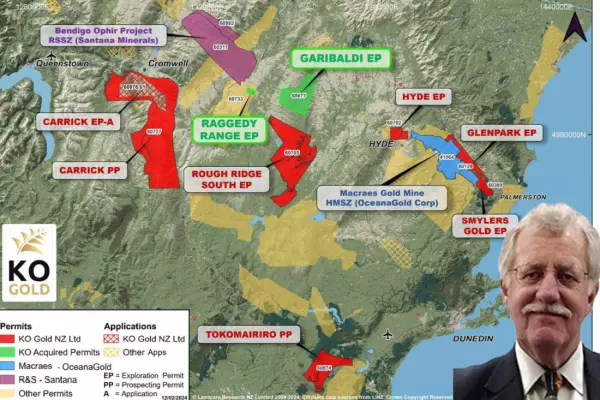On the streets of Auckland’s central business district, a Canadian-accented presenter approached members of the public armed with a loaded question about “the state of New Zealand’s media”.
The vox pop interviews, hosted on the Instagram page of Operation People, the media venture of anti-vaccine mandate influencer Chantelle Baker, supported the launch of NZ News Essentials (NZNE), a secretive digital news site that has taken careful steps to hide its founders, backers, and writers.
The interview video was pinned to the top of the NZNE Facebook page until a few weeks ago, around the time that X (Twitter) users started posting clues about who might be behind the operation after searching the companies.
Misinformation
NZNE and its sister website, The Centrist, have emerged over the past year amid a proliferation of new media companies formed to challenge established “mainstream” outlets, often targeting disaffected groups on the political fringes.
In the Instagram video, Baker – whose Facebook page was banned last year by social networking group Meta – appears on screen to lambast the established media and encourage her followers to read NZ News Essentials instead.
NZNE has declined several opportunities for an interview, with the first request made in April, and did not respond to BusinessDesk’s latest enquiry.
Until now, little information has been known about NZNE and The Centrist, which were both set up over the past year.
BusinessDesk can reveal that Canadian private equity tycoon James Terrence Omer Grenon, founder of Calgary-based investment firm Tom Capital Management and owner of one of NZ’s most expensive properties, is associated with the alternative news ventures.

Jim Grenon. (Image: Supplied)
After James ‘Jim’ Grenon arrived in NZ from Canada in 2012, he registered four companies between 2016 and 2019. One of those, JTG 3 Ltd, was renamed The Centrist Limited in March this year.
Grenon served as the sole shareholder and director of The Centrist until June 27 and Aug 2, respectively, handing the roles after those dates to Tameem Adam Abdul-majeed Barakat, the man featured in Baker’s Instagram video.
According to Companies Office filings, NZNE was initially registered in November as XYZ Sashi Limited by Matthew Gray, an Auckland resident, before its name was changed a few days later, and fellow Aucklander Glenn James Arthur replaced Gray.
Both The Centrist and NZNE list their address for service as accountancy firm BDO’s offices in Graham Street Auckland, the same address used by Grenon’s holding companies in NZ.
Concerns and tax
Remarkably, this is the same building as the headquarters of NZME, the NZ stock exchange-listed news publisher with acreage in the same Graham St commercial building as BDO.
An NZME spokesperson said the company, which owns BusinessDesk and the NZ Herald, had contacted NZNE to express concerns about a copyright breach.
“We are aware of the website and have been in communication with the owner regarding our concerns about its use of the name NZNE, which we believe is a trademark infringement,” the spokesperson said.
Barakat and Arthur are listed as the 100% shareholders of The Centrist and NZ News Essentials.
Grenon’s enormous wealth and move to NZ made headlines in Canada when he shifted C$55 million (NZ$68.2m) to NZ while embroiled in court action with the Canada Revenue [Tax] Agency over a sophisticated investment fund structure he had created as the annuitant of a registered retirement savings plan.
At the heart of the action and appeals were whether tax exemptions rising from the funds involved were tax avoidance structures.
At one point, the tax agency tried but failed to stop Grenon from shifting the C$55m (NZ$68.2m) to NZ on the basis that an alleged C$283m of tax debt might not be repaid should the agency win its case.
The agency’s so-called jeopardy order to halt the money transfer was unsuccessful. Court hearings, including appeals over nearly a decade, resulted in Grenon securing wins and losses along the way. He is still involved as an advisor to the Canadian investment firm he founded.
Court documents revealed that after Grenon completed a law degree at the University of Manitoba in 1980, he practised briefly as a lawyer before pursuing corporate and finance interests.
The documents also revealed he gained significant wealth from the early stages of the oil and gas industry and had a penchant for in-depth study of tax law and, it would appear, for litigation.
Aside from the lengthy tax case, there is online reportage of his unsuccessful attempt to deduct legal costs from his income tax relating to family law court proceedings in relation to child support for two children after separating from his spouse in 1998.
A lavish street party hosted by Grenon and his present partner at their luxurious Hawaiian-style Takapuna beachfront pile in Gibbons Road on Queen’s Birthday weekend in 2019 featured prominently in the local Channel magazine, and the NZ Herald highlighted the home in 2020 as one of NZ’s 20 most valuable properties.
When asked by BusinessDesk about his connection to NZNE, Tameem Barakat and The Centrist, Grenon said: “You know, I am a private person, and I would like it to stay that way, so I have no comment.”
Viewpoints
NZNE and The Centrist’s articles regularly attack policy ideas such as tax reforms, equity programmes and rental controls, citing commentary from organisations such as the Taxpayers’ Union and NZ Initiative to support their opinion and analysis pieces.
Both publications are offered for free with no advertising, suggesting their backer has deep pockets and no need for subscription income.
In an unusual move, The Centrist also offers to pay its readers’ legal fees “to support freedom of speech” and fight “government overreach”.
The rapper and the golf partner
Barakat, the sole director of The Centrist, comes from Canada, like Grenon. He has a colourful history, including a past life as a rapper with the Canadian band Threat from Outer Space in the mid-to-late 2000s.
A review on straight.com identifies Barakat’s tunes as offering “incisive critiques of Western consumerism” and suggests “protest never sounded so funky”.
Now based in Auckland, Barakat’s LinkedIn page previously listed his role as the managing editor of NZ News Essentials, but the link to NZNE seems to have disappeared.
His CV on the social network includes former roles as a youth worker, case management and security at a Canadian correctional institution for female offenders and a spell as a freelance editor.
His current role is listed as managing editor based in Auckland, with no publication listed. He does put his name, though, to one active X (Twitter) feed called Newscan, presumably a nod to his Canadian connections.
Past interviews with Barakat have described The Centrist shareholder as a “naturally political” person. 
Glenn Arthur. (Image: Supplied)
In a 2008 interview with Vancouver publication The Georgia Straight, Barakat reportedly “confesses some admiration” for American conspiracy theorist Alex Jones, while his band’s lyrics are said to include claims that 9/11 was “an inside job”.
Arthur, the sole shareholder of NZ News Essentials, does not appear to have a media background.
His LinkedIn page lists a role as a sales consultant for Energy Efficient Solutions, a heat pump and air conditioning business, while the Companies Register lists him as a former shareholder of Vent Group, a central heating company liquidated in 2014 after suffering cashflow difficulties, principally an unresolved dispute between shareholders and “overburdened legacy debt.” Arthur sold out two years before the company collapsed.
Arthur is a friend of Grenon’s. As of Aug 28, Arthur’s Facebook profile page features a cover photo of the pair in a group, smiling and holding a golf trophy.
A ‘centrist’ view
While NZNE claims to provide “non-partisan” and “balanced” news in response to an “overly partisan and left-leaning” media, the website appears closely aligned with right-wing and conservative talking points across several topics.
NZNE has built a following online, with 3,500 followers on Facebook, and 2,600 followers on X, the social networking site formerly known as Twitter.
A verified and active user of X, NZNE’s recent posts include a comment likening equity programmes to communism and a post questioning how the state can identify people as Māori.
One post calls co-governance “a conspiracy of silence”, while readers’ comments on Facebook posts openly express hostile views towards Māori, transgender people, and those who have taken the covid-19 vaccine.
Another recent NZNE social media post questions whether colonisation explained “poor outcomes” for Māori, claiming colonisation was being used “to justify divisive policies”.
The publication also flirts with conspiracy theories.
One article complains about “a lack of media coverage” of the prime minister, Chris Hipkins’, appearance at the World Economic Forum in June and the media “downplaying” NZ’s “involvement” with the WEF.
A popular online conspiracy theory links the WEF with a plot to overthrow national governments and dismantle capitalism, often called the “Great Reset”.
While heavily critical of the Labour government and policies from left-wing parties, the website aligns its views closely with policy positions from the political right.
Culture war and so-called ‘anti-woke’ topics also feature regularly on the website, including a keen focus on transgender issues.
In one article, NZNE supports and promotes efforts by conservative Christian lobby group Family First NZ to place a ‘What is a woman?’ advert in NZ newspapers, which Family First withdrew after publishers questioned the campaign.
News publishers across NZ opted not to run the advert, widely seen as an attempt to provoke the transgender community.
The Centrist, which highlights articles from across the internet, also leans on conservative political talking points.
Recently showcased articles include links to content from Bob McCoskrie at Family First, Avi YemIni of Rebel News, and The BFD, the website associated with right-wing blogger Cameron Slater.
Contradictory editorial policy
While the NZNE website presents the outlet as a credible alternative to established media, its stories often contradict its editorial principles.
Despite criticising the NZ media for presenting “opinion masquerading as fact”, content on the NZNE site regularly links to traditional media sources, including 1 News, the NZ Herald, and the Guardian.
NZNE editorialises on story topics, but there is an absence of originally sourced news stories.
NZNE will not reveal who is funding the website, what the funders’ motivations are, and why it has chosen to keep its writers’ names a secret.
However, it strongly criticises publishers for accepting money from the government’s $55m Public Interest Journalism Fund, of which BusinessDesk has been a recipient.
Initially, the site attributed its stories to names such as Citizen Joe, Diogenes, Blake from Downtown, Sled Dog, John the Savage and Adam B.
'Pseudonyms preferred'
“We prefer pseudonyms for our on-staff writers because our objective is to create a following for the publication, not the individual,” the company claims on its homepage.
But lately, those names have disappeared, with just NZNE attributed as the writer of articles.
The publisher claims an editorial board with “a wide range of domestic and international experience” but names no journalist involved.
The emergence of secretive, alternative news sites comes ahead of October’s general election. The opaque publication has fuelled concerns that readers may struggle to separate established news outlets from those funded and produced by unknown sources.
Merja Myllylahti, a senior lecturer in the journalism department at the Auckland University of Technology (AUT), said publications that attempt to hide their funding source and journalists’ names are a cause for concern.
“It’s definitely not a news outlet, but it’s dressed up as news,” Myllylahti, a co-author of AUT’s annual Trust in News report, said.
“When you have no information in terms of who is running it and who’s writing the articles, it’s concerning as there is no transparency. It is highly, highly problematic.
“People do consume sites like this, particularly if they are active on social media. There’s a danger as these sites can blur the boundaries between legitimate news sites. Clearly, they have an agenda and a narrative.”
The existence of secretive news websites underlines the need for greater “media literacy” in NZ, Myllylahti added.
“Readers need to be super careful about these sites, question who is behind them, and what their purpose is. Is it to meddle in the election and hijack the media?
“Journalism is all about transparency.
“Names and bylines add to a news outlet’s transparency and trustworthiness, and if there is no information being given and information is being hidden, alarm bells should be ringing.”
This article has been updated in its reference to Family First's advertising campaign.



















